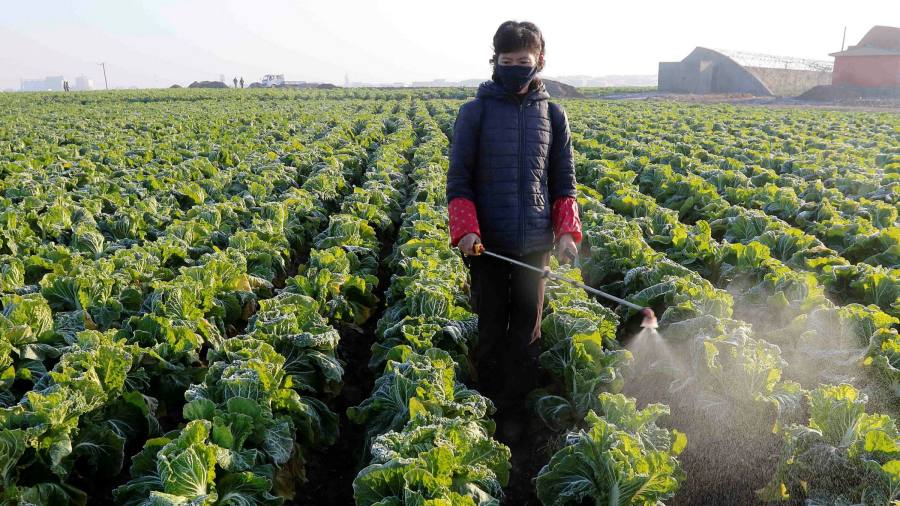[ad_1]
South Korea has warned of a worsening humanitarian crisis and food shortages unfolding in North Korea as leader Kim Jong Un grapples with the fallout from the coronavirus pandemic.
Lee In-young, the unification minister responsible for ties with Pyongyang, has called for greater international support for the country’s 25m people as the nuclear-armed state faces food security and economic pressures stemming from tough sanctions, strict border closures and typhoon damage.
“We are watching North Korea very carefully with the concern that there might be a humanitarian crisis,†Lee told the Financial Times.
The warning was delivered more than a year after Pyongyang shuttered land, sea and air routes into the country and clamped down on domestic movement to protect its brittle healthcare system from the pandemic.
While North Korean officials claim zero cases of infection, the border closures severed trade with China, Pyongyang’s lifeline, and cut off supplies of international food and medical aid.
Amid declining imports of food and fertiliser from China, analysts and diplomats believe North Korea, already one of the world’s poorest countries, faces its worst economic decline since the mid-1990s — when famine killed millions of people following severe droughts and the end of Soviet support.
The severity of food security problems in part now hinges on the next harvest after a brutally cold winter.
Lee, whose ministry closely tracks the North Korean economy, said immediate food shortages were “less likely†to reach the same extremes of the 1990s given the country’s advancements. But he stressed that the international community had to “think about whether North Korea’s food supply will be sustainable in the futureâ€.
In a sign of rising pressure, Kim publicly conceded in August that his economic plans had failed and has tightened central control of the economy in response.
With a potential crisis looming, Lee suggested reassessing the efficacy of the sanctions that were bolstered by the US in 2016 after a series of weapons tests.
“We have five years . . . of tough sanctions, so maybe it is time to see whether sanctions have positively contributed to the successful denuclearisation process of North Korea or not,†he said.
Lee added that a “comprehensive review†should assess the impact of sanctions on the lives of ordinary North Koreans.
He also called for more international support in vaccinating North Koreans, echoing Emmanuel Macron, the French president, who has urged rich countries to help supply Covid-19 jabs to poorer nations.
“The international community has to understand the fact that one country safe from Covid-19 does not mean an end to the pandemic. Countries with abundant resources should support the countries without,†Lee said.
The unification ministry is also drawing up plans for international backing for a series of road and rail projects in North Korea.
Lee suggested sanctions exemptions for humanitarian aid could be expanded, or enforced with more flexibility, to allow the “non-commercial, public infrastructure projectsâ€, as long as Seoul could prove they would not be used by the North Korean military or nuclear programmes.
“To [South] Korea, North Korea is not simply a neighbour, living next door; we have the same heritage, we share air, earth and water . . . I sincerely hope that people in the international community will have that understanding of the unique nature of inter-Korean relations and a more supportive view of inter-Korean projects and co-operation,†Lee said.
The proposal comes as Joe Biden’s administration reviews US policy on North Korea. Nuclear talks stalled despite three meetings between Kim and former president Donald Trump. Kim also cut engagement with Moon Jae-in, an effort, analysts said, to force the South Korean president into offering bigger concessions.
[ad_2]
Source link






